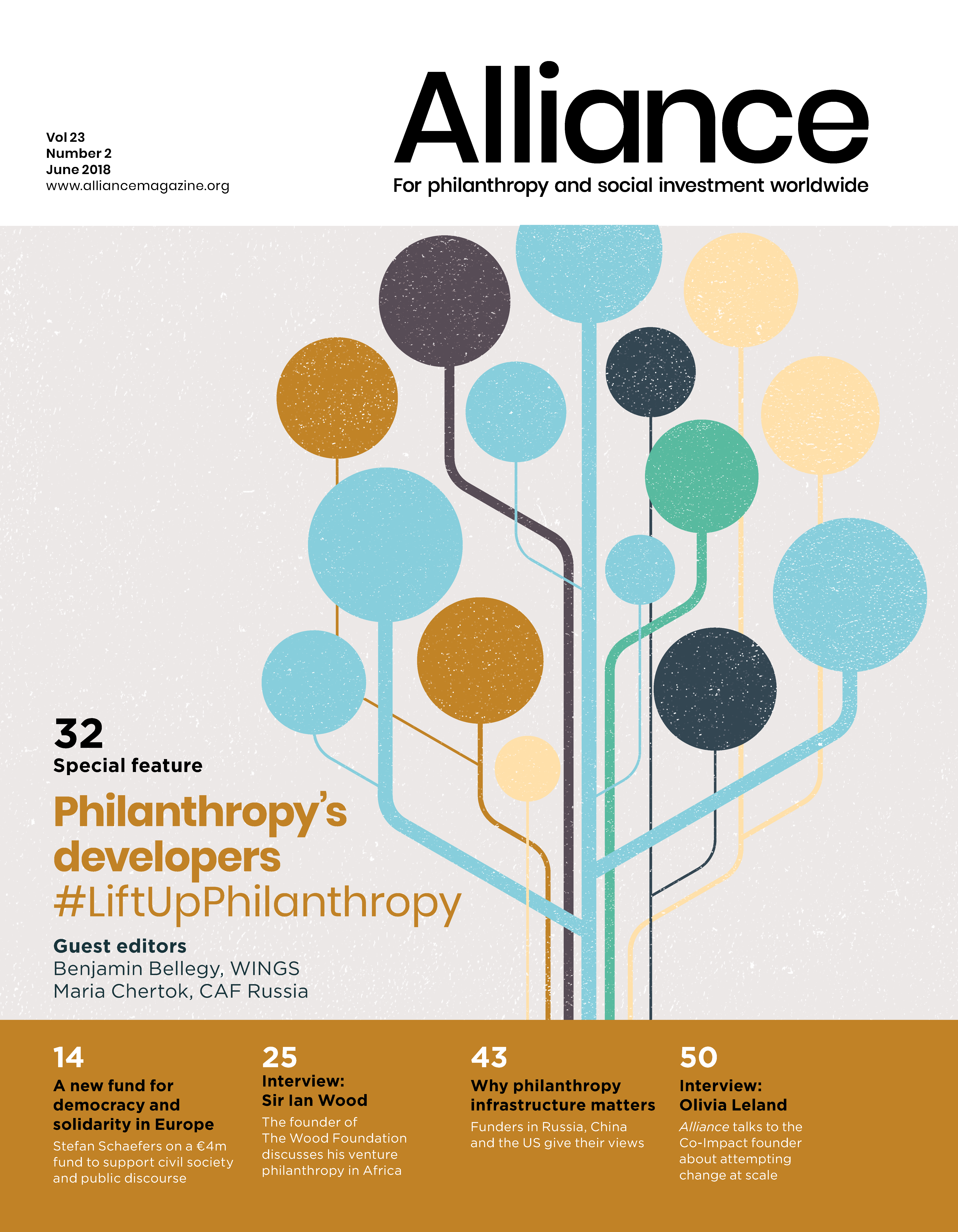Community philanthropy should be a star player in sustainable development
The penny finally seems to have dropped: if civil society is going to be relevant and resilient over the long run, local support matters. As flows of conventional development aid decrease and more and more governments seek ways to undermine NGOs by questioning their legitimacy if they receive external funding, the importance of having a local base of donors is becoming clear.
New forms of participatory giving are emerging, particularly in countries that were previously net recipients of aid. This is happening both among middle classes with disposable income and an emerging social conscience (think #GivingTuesday), and less well-off communities where systems of giving and solidarity have long existed but are being reimagined and organized in new ways that build power and agency at the grassroots level (such as the Kenya Community Development Foundation’s network of community funds).
Too often, community philanthropy has played second fiddle in the larger philanthropy discourse, the ‘poor cousin’ of private foundations, which dabbles at the margins of social change and deals in small resources with community-level partners.
Community philanthropy has undoubtedly gained greater recognition as key to an effective development system both as a form of and a force for building inclusive, democratic societies. Over the past 20 years, as the global field of community philanthropy has emerged, philanthropy development and support organizations and networks have played an important role in strengthening practice, identity and a collective voice. CAF Russia and ARC in Romania, for instance, have been instrumental in the growth of community foundations and Prospera has performed a similar role among women’s funds. But it needs to be taken more seriously by other, bigger actors in the philanthropy and development space and, here again, support organizations have a vital role.
Too often, community philanthropy has played second fiddle in the larger philanthropy discourse, the ‘poor cousin’ of private foundations, which dabbles at the margins of social change and deals in small resources with community-level partners. In the decades of attempts by big development agencies to achieve lasting and locally-owned change, community philanthropy is almost entirely absent as either a theory or a practice.
And yet, when the world is struggling with migration, economic crisis and climate change, and the rise of populist anti-minority politics that appeal to people who feel ignored, funding strategies that put people, their agency and their resources at their centre are more important than ever. It is the work of building trust and changing attitudes at the very local level that is both critically important and beyond the capability of most funders.
Within the community philanthropy field we have seen the emergence of the #ShiftThePower hashtag as an extremely effective way to foster a sense of shared purpose among diverse, trail-blazing and often geographically scattered organizations. It has opened new kinds of partnerships and alliances with others advocating for more equitable approaches to development. It has also marked an important shift from earlier preoccupations in the community philanthropy field with precise definitions of institutional forms which at times constrained the creation of broader alliances and networks.
Despite this new energy and connectedness, however, community philanthropy is still young and often fragile. It needs assistance and that assistance can and should come from philanthropy’s infrastructure organizations. They have the reach and resources to connect community philanthropy organizations with larger funders and development agencies, to showcase what they can offer to philanthropy and development and to persuade the bigger fish that it’s time for community philanthropy organizations to come from the fringes to the centre. As the authors of The Spirit Level argue, a more equal and equitable society is good for everyone: it is time for big philanthropy – and its networks and support organizations – to embrace its poor cousins as equal allies in larger efforts to effect lasting social change.
Jenny Hodgson is executive director, Global Fund for Community Foundations.
Email: jenny@globalfund.org Twitter: @hodgsonjj




Comments (0)